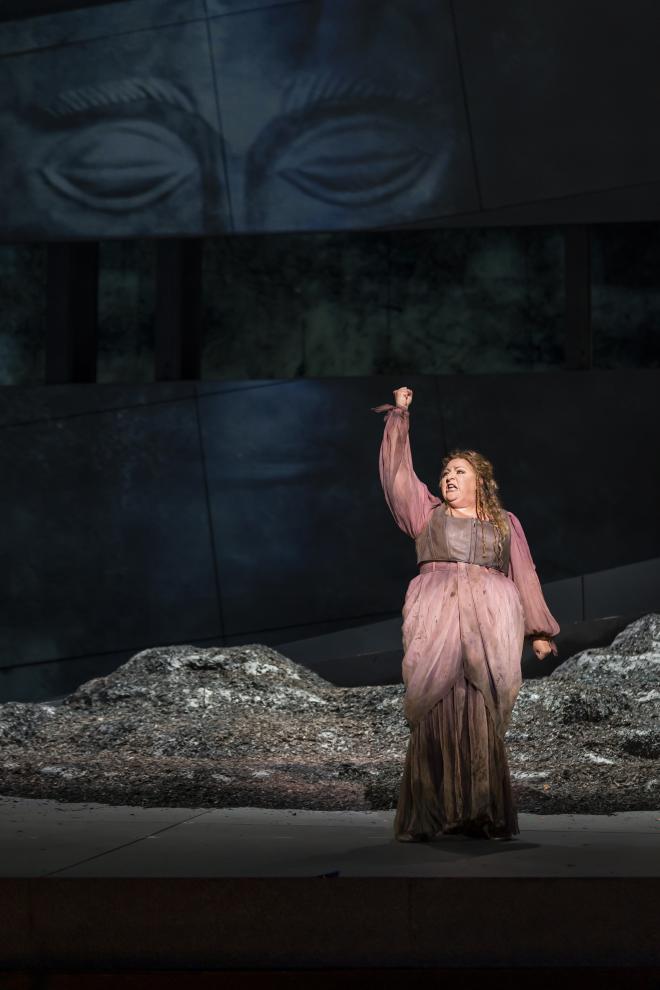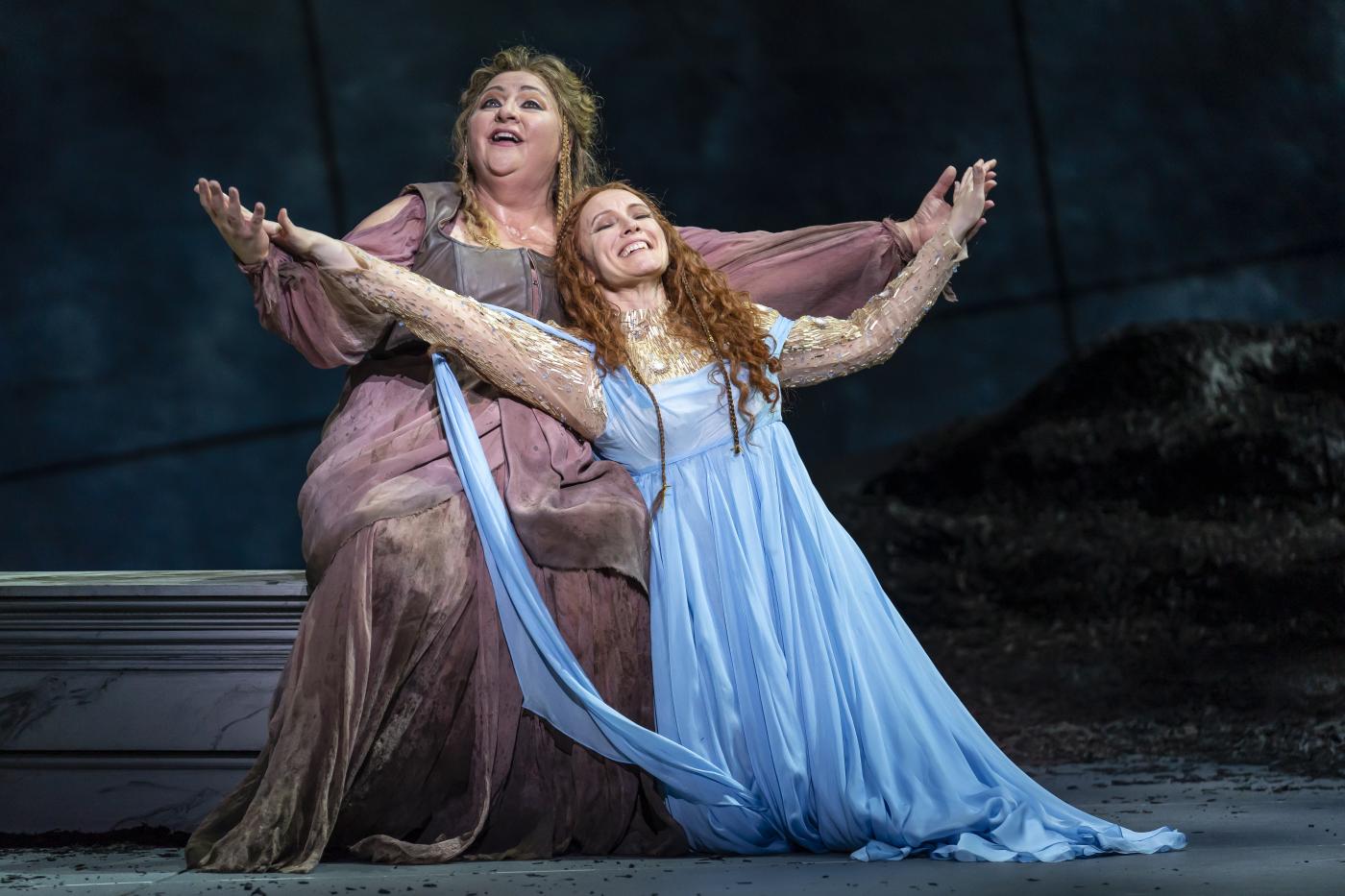Washington National Opera's 2022-23 season is in full swing. The schedule started a few weeks ago with Verdi's powerful Il Trovatore and continues a thread of dramatic tension with its current feature, Elektra by Richard Strauss, starring one of today’s greatest opera artists, soprano Christine Goerke in the title role. I recently posed these questions to Ms. Goerke, and I encourage you to read her thoughtful answers, which give us her perspective and deep understanding of the opera and role.
Linda Carducci: The character of Elektra is complex but single-minded; she is filled with anger, obsession and rage in her quest for vengeance against her mother, Klytemnestra and her mother's lover for killing Elektra's father, Agamemnon. Strauss gives the character of Elektra many passionate solo moments to express these blazing emotions, yet Elektra must also interact other characters, such as her mother, her sister Chrysothemis and her brother Orestes. How do you approach these transitions in terms of both singing and acting?
Christine Goerke: First, I’m not entirely sure that I can agree that she’s “single-minded”. Yes, as you say, she is filled with anger, obsession and rage in her quest for vengeance, but I think that she also feels loss, grief, sadness, wistfulness and love. This is the magic of this role. She remembers what she had before her father was killed. Her sister talks about what they both had and what they likely both wanted, and I think that is painful for Elektra.
As for her interactions with different members of her family…Strauss was *so* brilliant. He gave us all the information that we need to decipher the relationships in any given moment right in the score. With Klytemnestra, she is cautious, scheming, playful, and tactical. With Chrysothemis, she is kind, she teases, she protects, she is frustrated. With Orest, she is scared, wounded, vulnerable, damaged, and feels great love and immense pain. I could never say this role is easy, but I will say that as long as I give myself over to it, I can easily immerse myself in her
LC: Strauss worked with Hugo von Hofmannsthal, who wrote the libretto for Elektra from his adaptation of the Greek mythology and Sophocles' tragedy. Strauss's musical language is modern in this opera, with moments of cacophony and dissonance. The vocal elements and orchestration of the opera have been compared to Wagner's later musical language. Having sung (masterfully!) Brunnehilde in Wagner's Ring, do you find similarities between the two?
CG: It’s interesting… I do find that there is a dissonance that pervades the score of Elektra, often without resolution. That dissonance becomes her consonance, in a way. To me, Strauss’ musical language has always felt like a very separate entity to that of Wagner. With Wagner? I have to think about line and beauty of tone all the time. It always has a bel canto feel to it. With Strauss? I need more of a “road map” through the role to decide what feels as though it needs to be sung lyrically and what is more about delivering the text in the color of the emotion that accompanies it… it’s very difficult to put that into words!
LC: Strauss, known for his sense of humor, called himself "a first-rate second-rate composer". He has supporters and detractors. Yet four of his operas -- Der Rosenkavalier, Elektra, Salome, and Ariadne aux Naxos -- remain standard repertoire with the world's leading opera companies. What are your thoughts?
CG: I have had the luxury of a very long career. I have lived with every composer from Cavalli to Britten and beyond. It wasn’t until I sang this work for the first time (*as Chrysothemis) that I felt as though I found the reason that I was given my voice. I will have to very heartily disagree with Herr Strauss. He was a first-rate first- rate composer, and to this day has a singular musical language that is immediately recognizable as his. I’m not sure how much more first-rate one can get!
Editor's Update:
The US soprano Christine Goerke was awarded the Chevalier of L’ordre des arts et lettres on November 6 after her performance of Elektra at Washington National Opera.
Goerke was given the award on stage after her curtain call by French Cultural Attaché Denis Quenelle.

PBS PASSPORT
Stream tens of thousands of hours of your PBS and local favorites with WETA+ and PBS Passport whenever and wherever you want. Catch up on a single episode or binge-watch full seasons before they air on TV.

